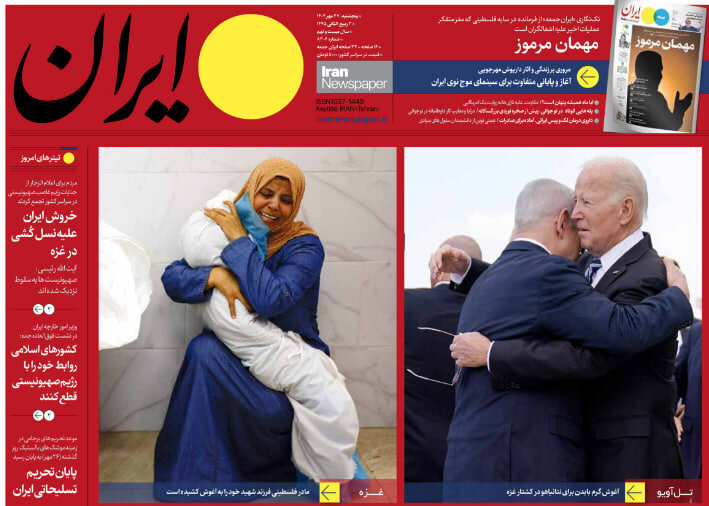The end of arms embargo on Iran

In a note, the Iran newspaper addressed the end of missile sanctions on the Islamic Republic and said: Finally, the day of "transition" has come and limitations on the Islamic Republic of Iran in the field of ballistic missiles have ended based on the JCPOA, and Iran is no longer facing any sanctions from the United Nations Security Council in this regard.
However, the European Union member states claimed that they will maintain restrictive measures against the Islamic Republic after October 18. In a situation in which the West has not found a possibility to resort to the trigger mechanism, the scope of missile sanctions on Iran has been reduced from the global level to the level of Europe and America. While Europe and America insist on maintaining missile sanctions on Iran in place, they have not had much relationship with Iran in terms of buying and selling weapons, so the lifting of UN sanctions will provide the possibility for other countries from now on to freely trade weapons and share missile technologies with Iran.
Kayhan: Iran ranks 23rd in maritime global trade
In a commentary, Kayhan discussed the rise of Iran's maritime transport. It wrote: According to UNCTAD, United Nations Conference on Trade and Development, the total capacity of Iran's shipping fleet in 2022 is estimated to be 19.3 million tons. The comparison of Iran's maritime transport with other countries shows that Iran is among the great powers of maritime trade in the world, and in fact, it is ranked 23rd in terms of sea cargo. According to experts, Iran's possession of a large and diverse naval fleet, along with its geopolitical status and extensive access to the world's transportation routes, has played an important role in neutralizing the U.S. sanctions against this country. UNCTAD announced in its latest report that the capacity of Iran's shipping fleet was greater than that of many industrialized countries such as France, Italy and Canada and countries such as Saudi Arabia and Brazil.
Shargh: Continuation of missile embargo by US against Iran
In a description, Shargh discussed the continuation of sanctions on Iran by the U.S. It wrote: The U.S. Treasury Department Office of Foreign Assets Control (OFAC) announced sanctions on 11 individuals and 8 institutions. The statement by OFAC states that these sanctions affect the development and progress of Iran's ballistic missile and drone programs. The U.S. Department of Treasury declared it has imposed new sanctions against Tehran in line with UN Security Council Resolution 2231 under the pretext of the expiration of UN arms limitations against the Islamic Republic. In this statement, it is claimed that the new sanctioned items will deter the development of Iran's ballistic missile and drone programs. Despite the expiration of Resolution 2231, the United States remains steadfast to confront what it called “threat” posed by Iran's purchase, development, and proliferation of missiles, drones, and other military weapons. The U.S. Department of Treasury also stated that as a result of today's action, all properties and interests of the mentioned individuals and institutions that are in the U.S. or the possession or control of U.S. persons should be blocked and reported to OFAC.
Siasat-e-Rooz: Missile power accelerates expiration of sanctions
In an analysis, Siasat-e-Rooz addressed an important point in the process of what is happening in Gaza these days and said: The movements in Gaza show the fact that the development of the country's defense capabilities, especially in the field of missiles, drones, sea and air, is a necessary thing to deal with any threat, as if it was not so, America and its partners would have attacked Iran hundreds of times. Today, it is Iran's military strength and its unity with the resistance front that maintains security for the country and does not allow the enemies to repeat the tragedy of Gaza against Iran. On the other hand, America's response to the humanitarian disaster in Gaza and the support of U.S. President Biden for the bombing of hospitals in Gaza have revealed the anti-human nature and unreliability of America once again and shows that their claim to support nations, especially women and children is nothing more than a deceptive illusion. Based on this, the solution to maintain stable security is to pay attention to defense capability, national convergence in solving economic problems and developing global diplomacy without the priority of the West, which can accelerate the process of the sunset of sanctions.
Leave a Comment